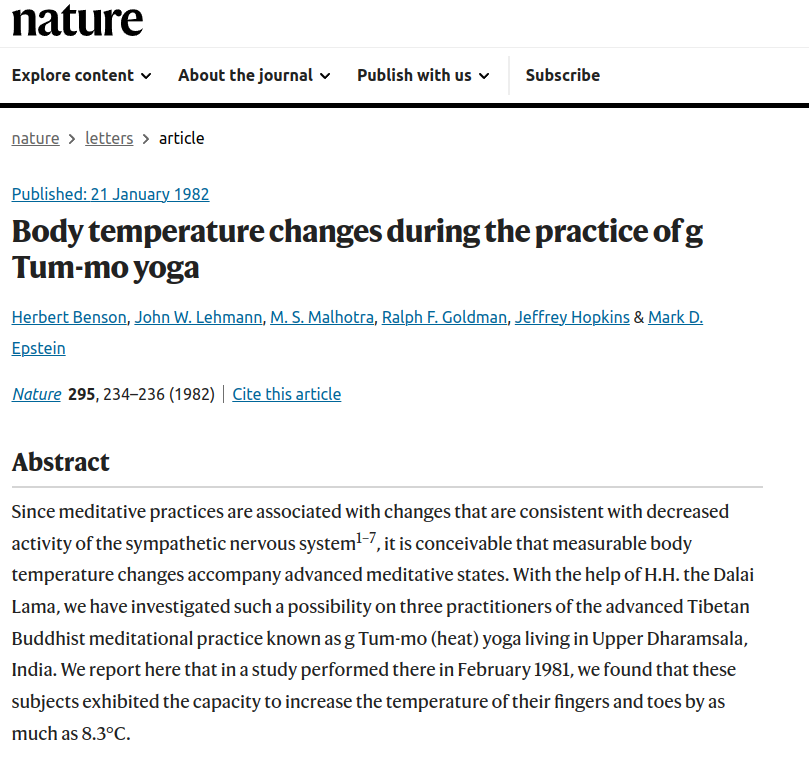Publication
Nature
295, 234-236
Abstract
Since meditative practices are associated with changes that are consistent with decreased activity of the sympathetic nervous system, it is conceivable that measurable body temperature changes accompany advanced meditative states. With the help of H.H. the Dalai Lama, we have investigated such a possibility on three practitioners of the advanced Tibetan Buddhist meditational practice known as g Tum-mo (heat) yoga living in Upper Dharamsala, India. We report here that in a study performed there in February 1981, we found that these subjects exhibited the capacity to increase the temperature of their fingers and toes by as much as 8.3°C.
Web and Email Links
Related Listings
Journal
Behavior Research and Therapy
In this study, Herbert Benson's (1975) Relaxation Response Meditation program was tested as a possible treatment for Irritable Bowel Syndrome (IBS). Participants were 16 adults who were matched into pairs based on presence of Axis I disorder, primary IBS symptoms and demographic features and randomized to either a six week meditation condition or a six week wait list symptom monitoring condition. Thirteen participants completed treatment and follow-up. All subjects assigned to the Wai […]
Journal
Radiology
Immediately before they underwent femoral angiography, 45 patients were given one of three types of audiotapes: a relaxation response tape recorded for this study, a tape of contemporary instrumental music, or a blank tape. All patients were instructed to listen to their audiotape during the entire angiographic procedure. Each audiotape was played through earphones. Radiologists were not told the group assignment or tape contents. The patients given the audiotape with instructions to […]
Journal
Scientific American
A very readable introduction to the scientific findings in neurology about primarily Buddhist forms of meditation.

